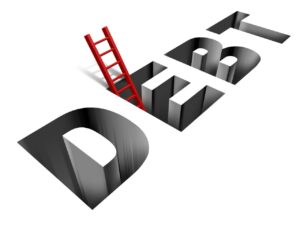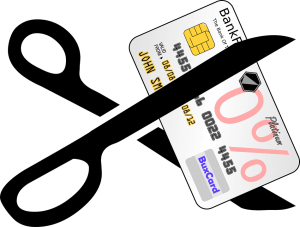Canadians are struggling more than ever to keep up with the cost of living. With rising interest rates, the cost of things like mortgages, food, and more is increasing. Consumer debt is following suit.
In October 2022, the market consensus on the mortgage rate forecast detailed even more increases. The forecast showed that mortgage interest rates could increase by another 0.50% in 2022 from 3.75% to a high of 4.25%.
Inflation has also increased steadily in the first half of 2022. Throughout the summer of 2022, inflation rose by about 5%, with the total Consumer Price Index inflation reaching 8.1% in June. This has led to a rapid increase in goods and services prices.
In such a challenging period of time, only half of Canadians state they aren’t comfortable with their finances. This is a drastic shift from last year’s 61%. This is indicative of Canadians’ increasing concern about the current economic climate.
A recent survey was conducted by Equifax Canada (an agency that provides credit bureau and information reports) to better understand Canadians’ concerns.
The data from Equifax shows that credit card utilization increased for six consecutive quarters. At the end of September 2022, Canadians’ average credit card balance was $2,121, a record high. The average non-mortgage consumer debt sits around $21,188, similar to levels seen in Q1 2020.
The survey also found that Canadians are leaning on credit cards more than ever due to inflation and rising interest rates. Also, Canadians are checking credit scores and credit reports more often.
Now, most Canadians are working with less (or even no) disposable income and must use each penny earned to make ends meet. This often makes paying off debts impossible.
Key takeaways from the Equifax survey
The survey divided individual personal finance sectors to better understand Canadians’ concerns.
Groceries
More than ever, Canadians are using coupons and hunting for deals – around six out of ten (59%). Around the same amount (54%) have cut back on grocery shopping entirely.
Household debt
One in five Canadians (20%) state they cannot afford an apartment within their desired location. Also, around 15% of those surveyed contemplate moving to another part of the country to save on rent. About 15% may move in with relatives for the same reason.
Credits score and reports
There were some positive findings during the survey. Canadians are becoming more informed about credit reports and credit scores. More than three-quarters (79%) say they check credit reports at least once in their lifetime. Around three-in-five (60%) say they have checked their credit reports in the past year.
What’s caused such high consumer debt?
With inflation on the rise, the cost of many goods and services has also increased. This has led to many Canadians charging more and more on their credit cards. While this eases some immediate pressures on their expenses, it costs them in the long run. The Equifax report shows that these practices are bringing many Canadians into debt. The balance increases outpace the ability to meet payments, causing them to remain in consumer debt.
However, consumer debt is not the crux of the issue. To find that, we need to look at rising inflation and interest rates.
Just how did things get so bad?
Since the start of the year, the Bank of Canada has been hiking borrowing rates. This is being done to combat the high level of inflation.
Also, starting in February, the conflict in Ukraine drove global inflation even higher. The rise in global inflation caused food and energy prices to skyrocket. Supply chain delays also contributed to extra costs at the retail level.
These are just a few factors responsible for the country’s current financial situation.
Canadians, while becoming more conscious of these issues, should still invest more time and effort in staying informed. Many will continue to borrow even with the rising costs of goods and services. However, borrowing will only cause more issues.
A much more sensible idea is to better manage money and prepare for financial difficulties that are sure to arise. Rather than being a victim of circumstance, being well prepared will ensure making ends meet isn’t so challenging.
How to reduce/stay out of consumer debt
To ensure you can face any potential hardships, it is best to know how to mitigate consumer debt. Debt can make any financial situation that may arise immensely more complex. Knowing how best to deal with it will make navigating the economic space easier.
Here are some great tips to help reduce and stay out of consumer debt.
Bi-weekly mortgage payments
Paying bi-weekly mortgage payments instead of monthly payments is a great way to expedite the process of paying off debt. Though it may seem like you are paying the same amount, you’re paying your consumer debt more quickly. This equates to paying an extra month’s worth of mortgage payments per year, helping you to pay off a mortgage several years sooner.
Reduce credit card debt
To reduce credit card debt, consider using one of the most common debt reduction methods:
- Pay off your highest interest rate card first
- Pay off your smallest balance first
Paying off your highest interest rate card first is the best mathematical solution. This method ensures you pay the smallest amount of interest. However, the smaller balance first method often works out better for most as it’s more motivating.
Debt consolidation loans
Debt Consolidation is taking out one loan to pay all your current outstanding loans. This includes auto loans, home loans, credit card loans, student loans, and more. However, it is best to first understand the pros and cons of these loans, such as the rates charged and the debt service ratio.
Debt consolidation with a reasonable interest rate is an excellent way to reduce consumer debt. Still, it works best when you also stick to a budget, so you don’t re-accumulate the amount of debt you’re paying off.
Due to the loan terms, many believe that debt consolidation will solve all of their problems. This is not always the case. For it to work as it’s meant to you have to keep up with payments until the loan is fully paid off and not accumulate more debt. Otherwise, you’ll end up back where you started.
Credit counselling
If you struggle to tackle debt independently, you can always sit down with a non-profit Credit Counsellor. They are experts when it comes to assessing whole financial situations. Credit Counsellors can create a budget, explore options, and put together a plan to get back on track and out of consumer debt. Their assistance is usually free and completely confidential.
Background about Equifax
Equifax is a global data, analytics, and technology company that educates to help drive progress. They are dedicated to assisting financial institutions, companies, employers, and government agencies. With their expert guidance, they help these entities make critical decisions with confidence. Their differentiated data, analytics, and cloud technology provide the power to push the economy forward.
If the current economic climate is leading you, like many others, to struggle with consumer debt, Consolidated Credit Canada can help. Call one of our Credit Counsellors to get started.




